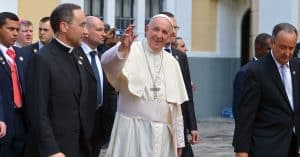Graves Steps Down as US Attorney Amid Disputes and Trump's Reign
The U.S. Attorney for the District of Columbia, Matthew Graves announced his resignation effective January 16, right before President-elect Donald Trump is set to return to the White House.
According to the New York Post, the announcement comes amid a swirl of controversy surrounding Graves’ handling of critical cases, including his decision not to prosecute Hunter Biden and a series of local crimes amidst a heightened wave of violence.
The Attorney has faced significant backlash for his decision to not press charges against Hunter Biden, and for his low prosecution rates for local crimes during his tenure. Furthermore, the timing of the announcement, just as President-elect Donald Trump is assuming office, has added fuel to this speculation.
Graves Addresses Allegations Regarding Hunter Biden Case
Confirming the allegations from IRS whistleblower Gary Shapley, Graves admitted to his decision not to join forces with Delaware US Attorney David Weiss for filing tax charges against Hunter Biden.
After reviewing the case materials, Graves’ office decided not to collaborate in the prosecution of Hunter Biden. Meanwhile, Weiss, who was given the role of special counsel, successfully filed tax charges against Hunter Biden in Los Angeles.
In response, Hunter Biden pleaded guilty to $1.4 million in tax fraud in September, after being convicted for three related firearm felonies in June. Despite these charges, President Biden granted a pardon to his son on December 1st.
DC Crime and the Role of Grave's Office
The DC U.S. Attorney’s office is tasked with the prosecution of both federal and local crimes in Washington D.C. During the fiscal year of 2022, Graves' office failed to prosecute over 67% of cases, leading to a wave of criticism.
The non-prosecution rate marginally improved in the fiscal year of 2023, dropping to 56%. According to Graves, the loss of DC’s crime lab's certification played a significant role in these low prosecution rates.
When reflecting on his tenure, Graves stated that serving as the U.S. Attorney for the District of Columbia has been the honor of a lifetime. He further expressed, “I think the best way of characterizing the decision was, we instructed — I instructed to say that we weren’t going to pursue being a local counsel on the case”.
Grave's Decision and Admitting the Challenges
There were a multitude of cases where Graves’ office wanted to proceed but could not. Due to the volume of pending cases, “There is no way” to “get up to speed on everything”, Graves remarks. He equates his position to “buying a mansion without an inspection, and whatever problems exist, you are buying those."
With the myriad of unresolved cases, Graves’ decision to step down echoes throughout the legal community. Despite the systemic roadblocks, Graves affirms, “As a career prosecutor, it is incredibly important to me to hold people accountable for their criminal conduct.”
This underlying statement summarizes the core challenges in Graves’ tenure as the U.S. Attorney for the District of Columbia, and the looming controversies as he exits the office.




